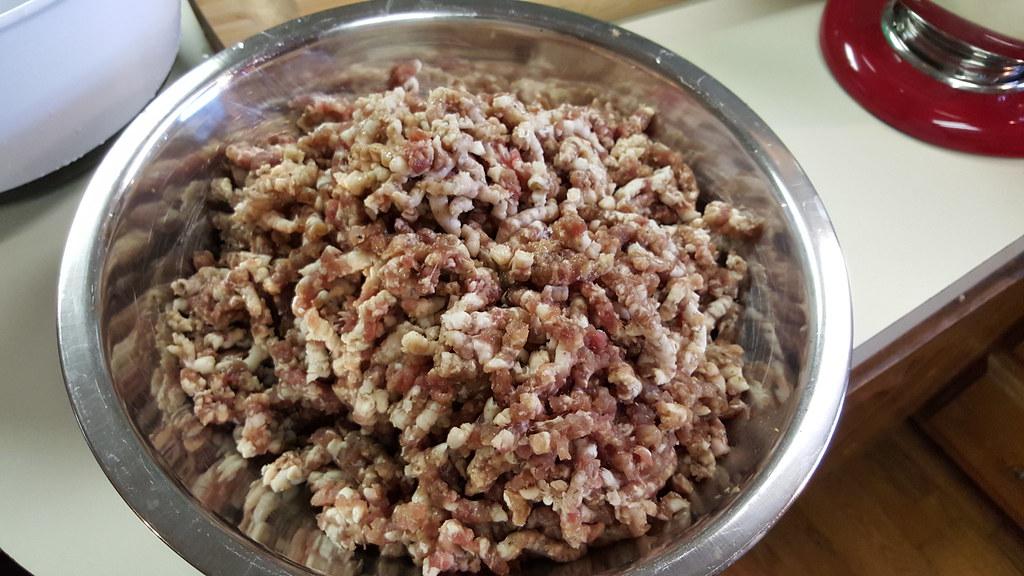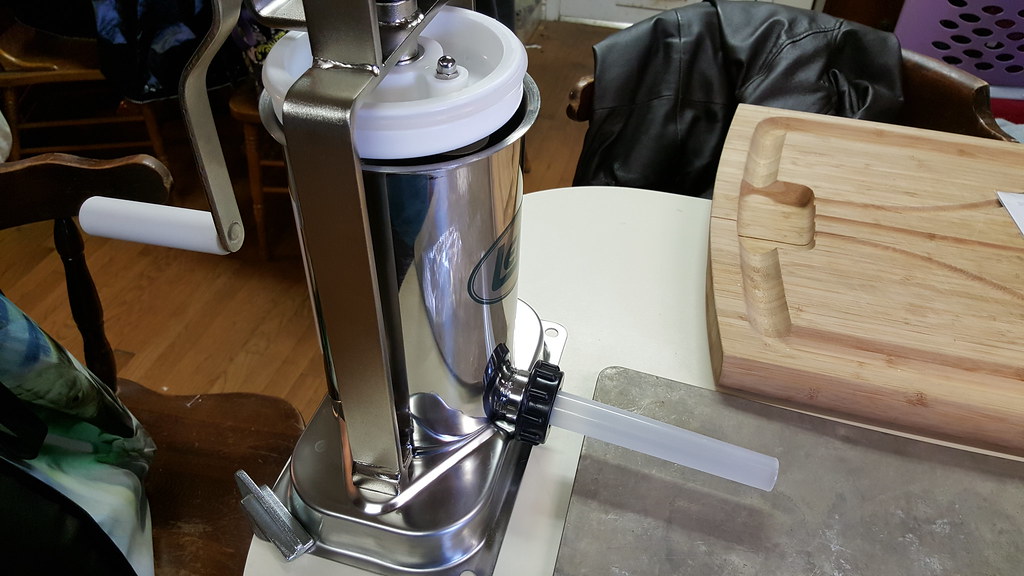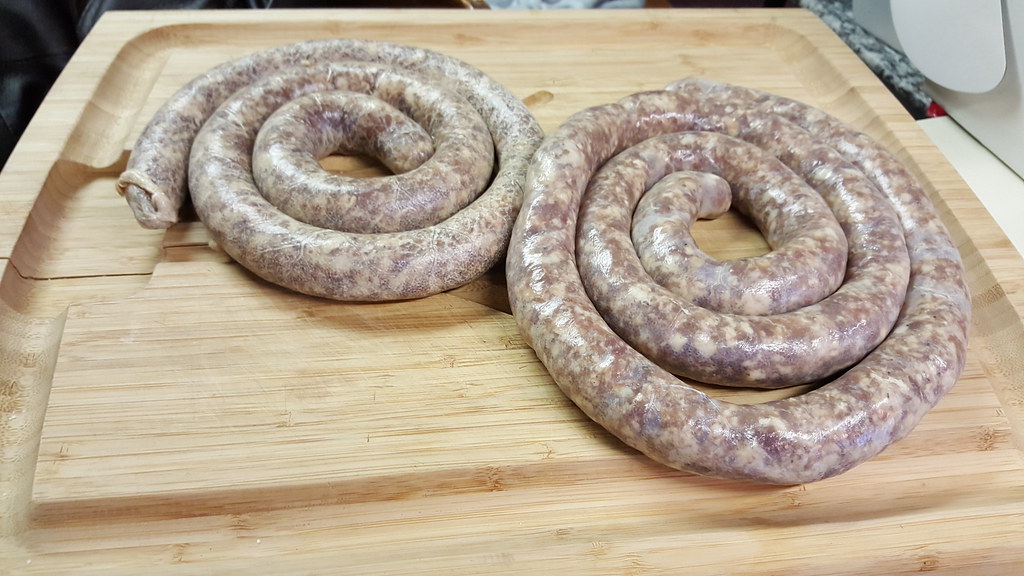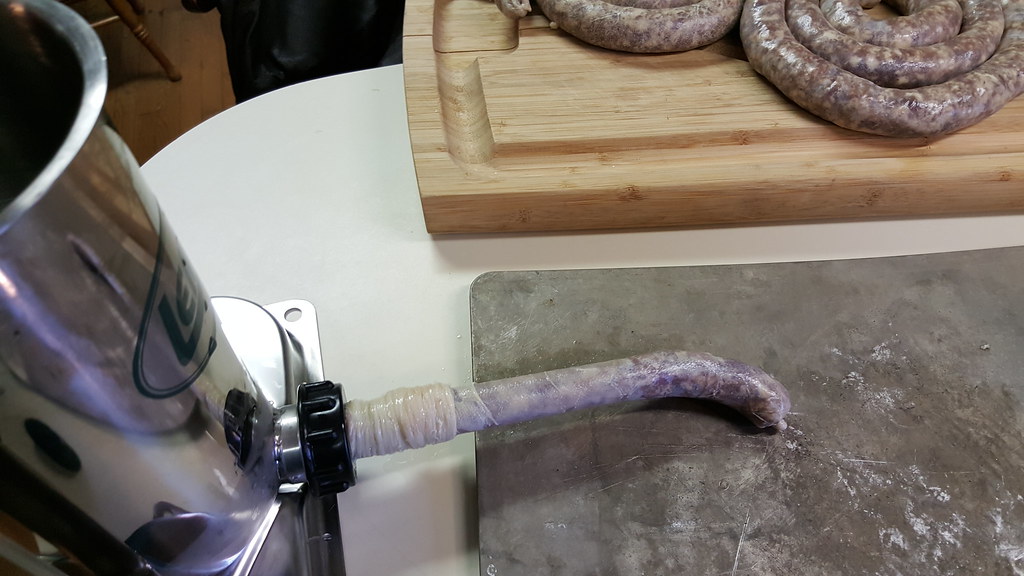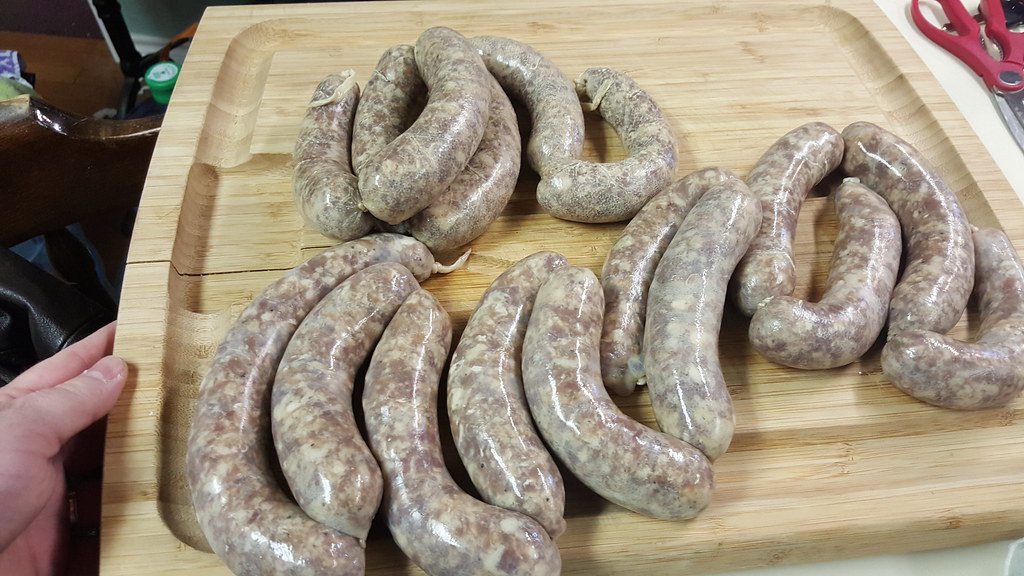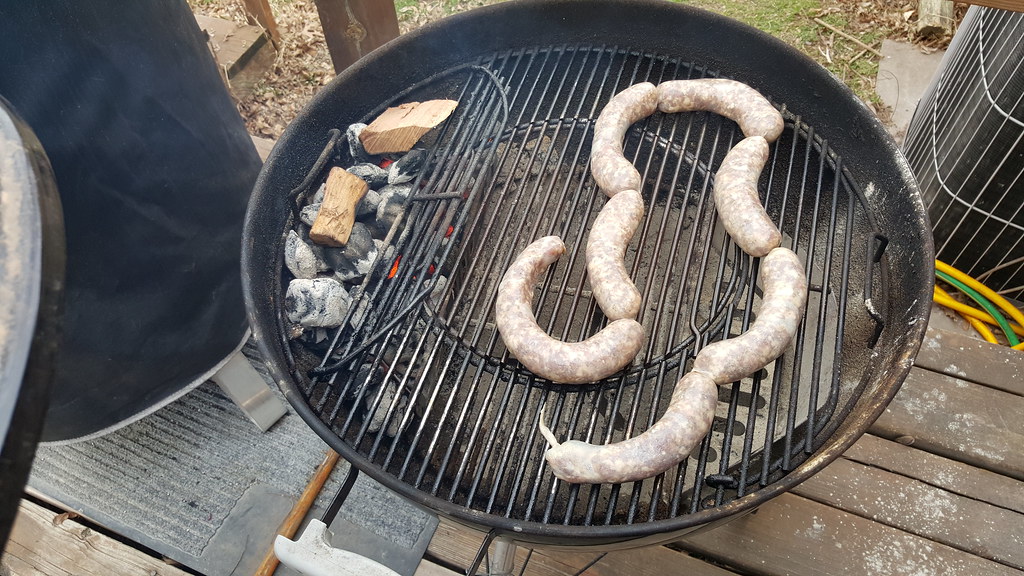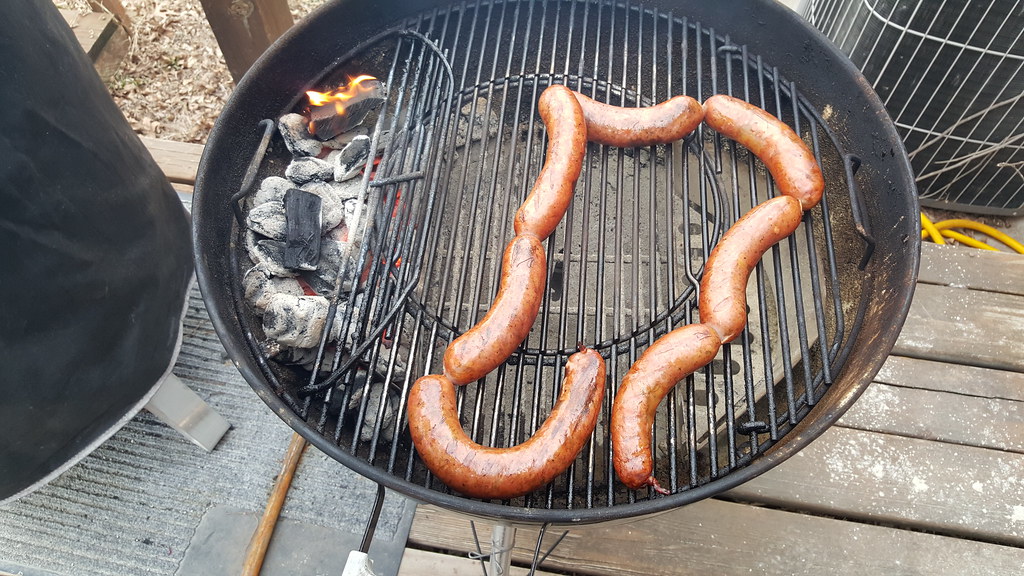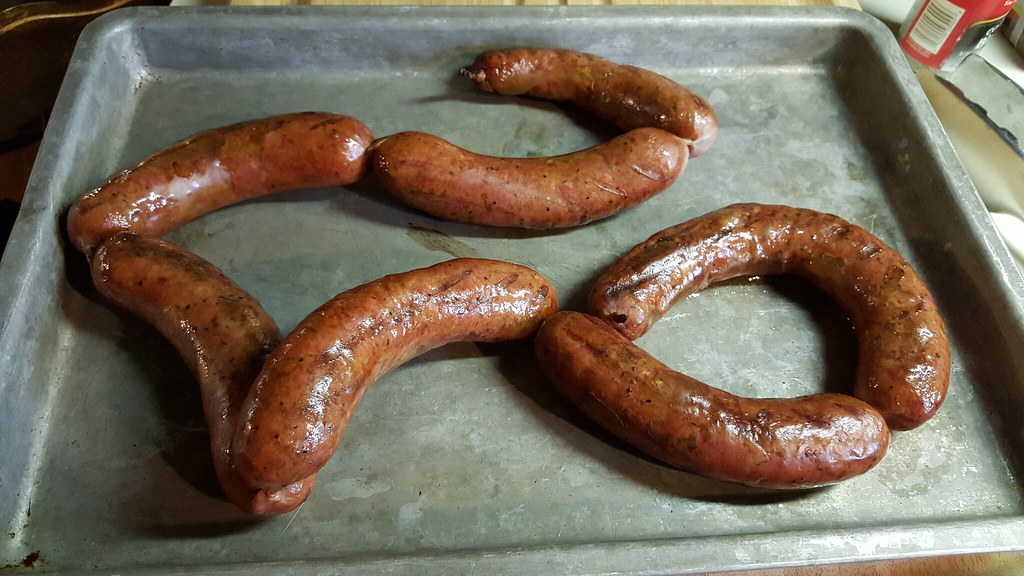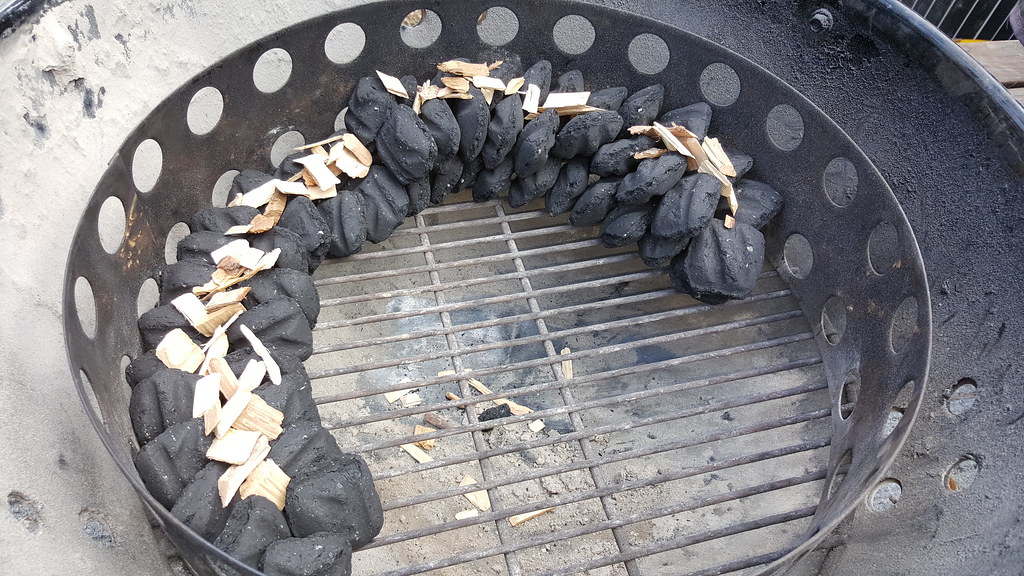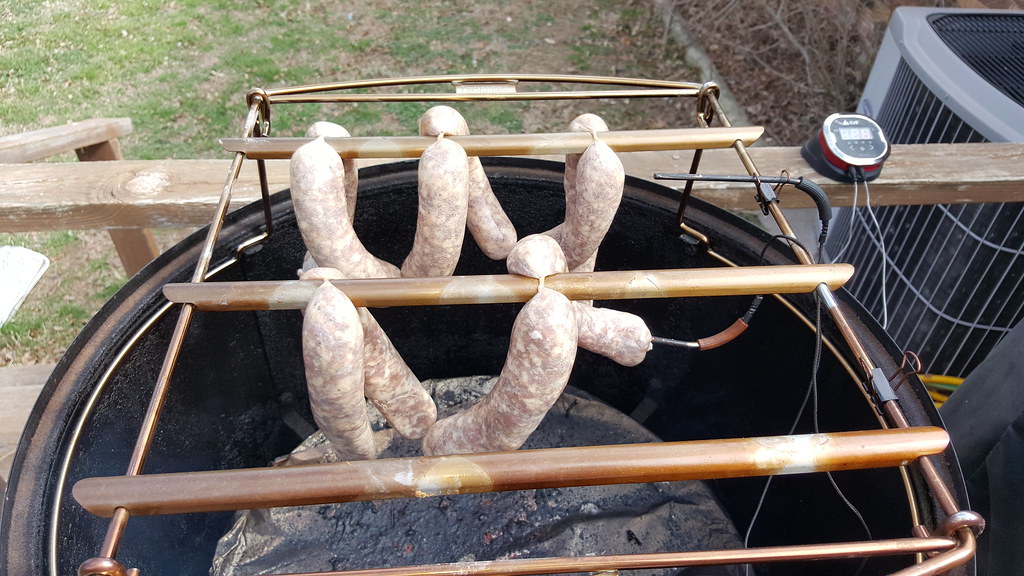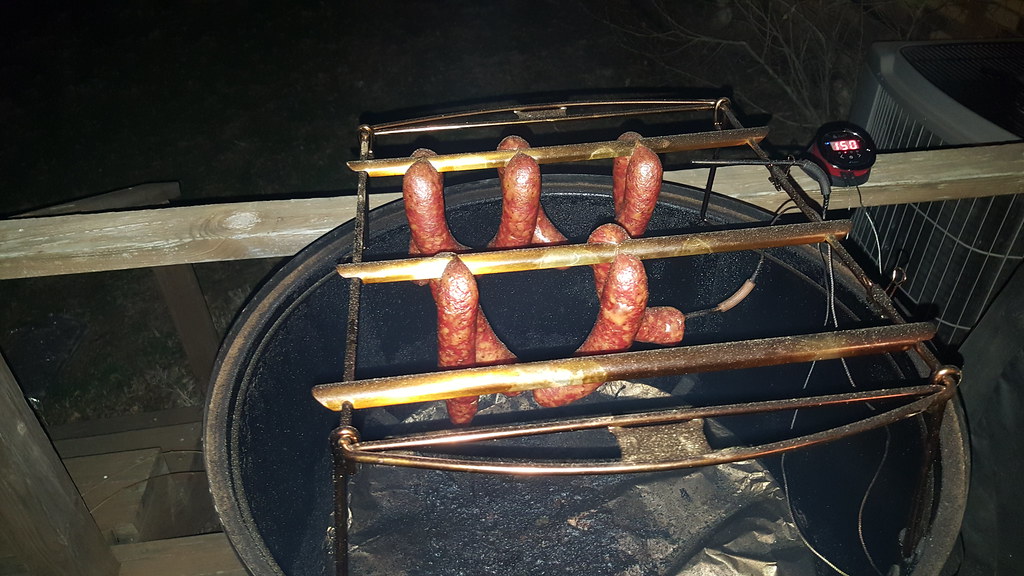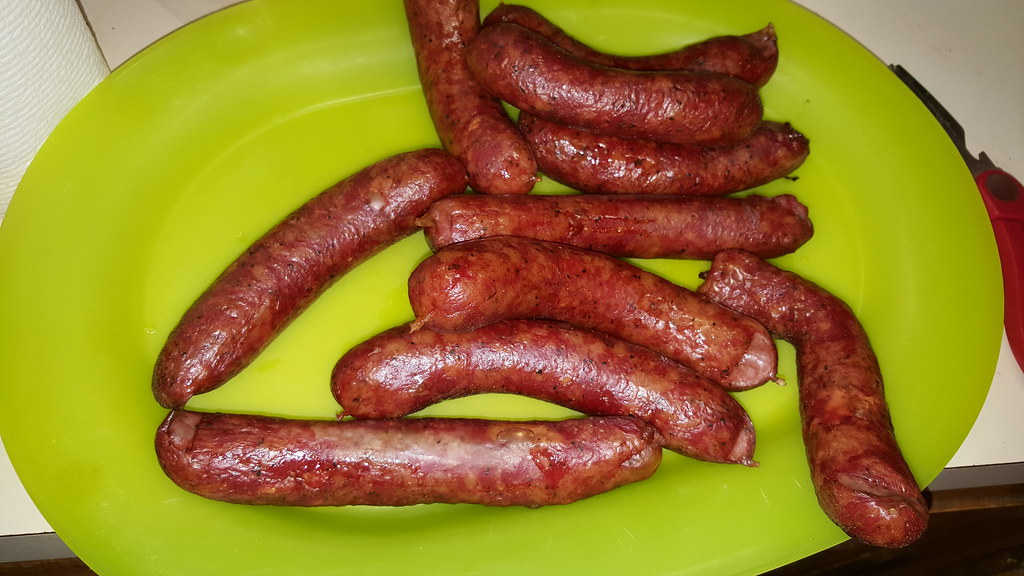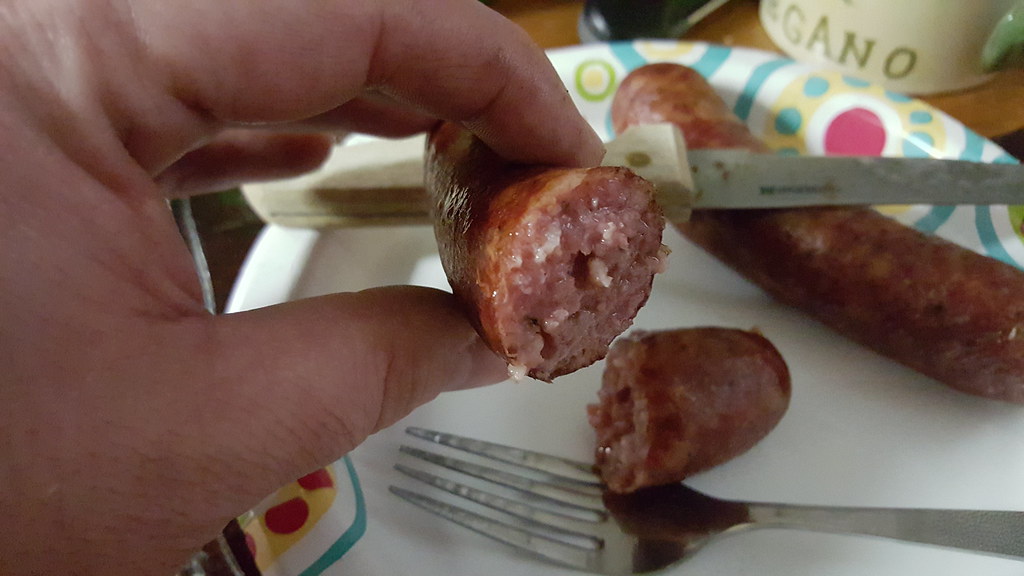Dustin Dorsey
TVWBB Hall of Fame
This is an interesting article from TMBBQ
http://www.tmbbq.com/sausage-making-freedmens-style/
He's got a very simple sausage recipe. I tried something similar to this making my first sausage but I messed up my calculations and the sausage was too salty.
I really like the idea of using ratio's by weight to make sausage. Evan LeRoy in the article mentions he got the idea from Michael Ruhlman's book "Ratio". Ruhlman is the same guy that wrote the book "Charcuterie". I'm planning on making a sausage based on this weekend. Again I'm shooting for a Texas style mostly beef sausage using scraps I have.
I'm thinking 2 parts chuck, 1 part pork butt and 1 part brisket fat, which based on what I have is about 2.18 lb chuck, 1 lb Butt and 1 Lb fat. (I'll convert to grams for simplicity when I make it). If I have some pork fat I may use that instead but I know I have brisket fat. Then its 1.67% salt, I'll probably go slightly lower. Then .25% pink salt (probably close to a teaspoon in this case).
Then everything else can be determined from that. I'll of course use some black pepper and probably some herbs.
http://www.tmbbq.com/sausage-making-freedmens-style/
He's got a very simple sausage recipe. I tried something similar to this making my first sausage but I messed up my calculations and the sausage was too salty.
I really like the idea of using ratio's by weight to make sausage. Evan LeRoy in the article mentions he got the idea from Michael Ruhlman's book "Ratio". Ruhlman is the same guy that wrote the book "Charcuterie". I'm planning on making a sausage based on this weekend. Again I'm shooting for a Texas style mostly beef sausage using scraps I have.
I'm thinking 2 parts chuck, 1 part pork butt and 1 part brisket fat, which based on what I have is about 2.18 lb chuck, 1 lb Butt and 1 Lb fat. (I'll convert to grams for simplicity when I make it). If I have some pork fat I may use that instead but I know I have brisket fat. Then its 1.67% salt, I'll probably go slightly lower. Then .25% pink salt (probably close to a teaspoon in this case).
Then everything else can be determined from that. I'll of course use some black pepper and probably some herbs.
Last edited:

